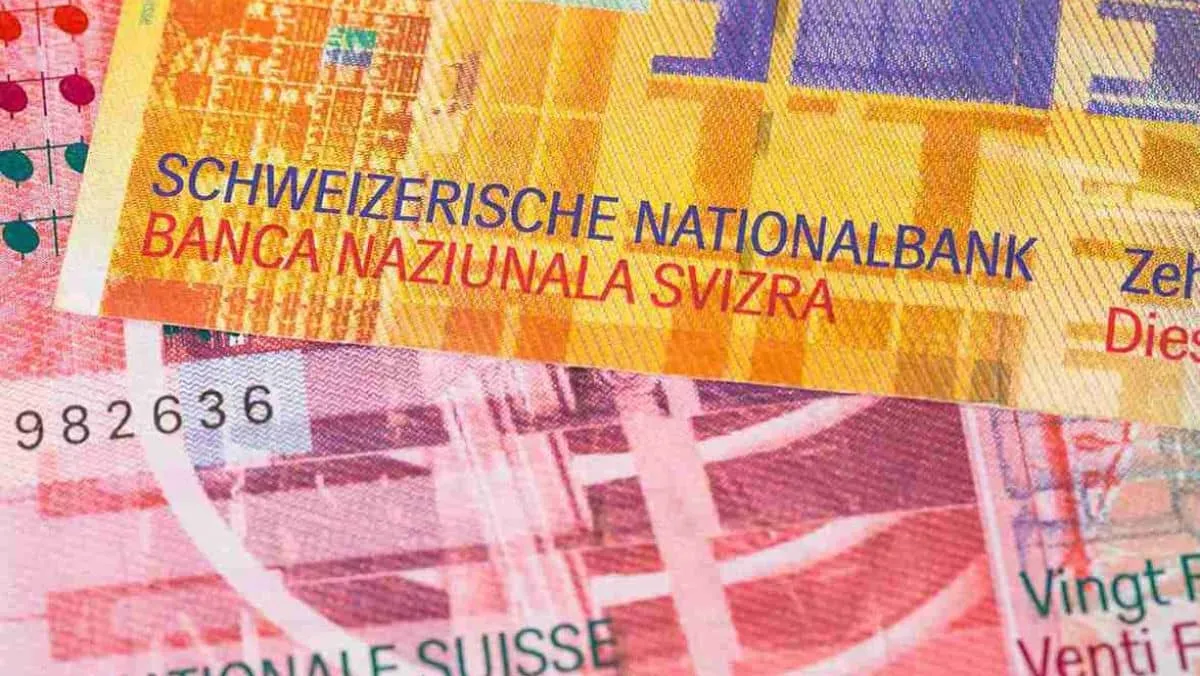Thursday Apr 4 2024 12:58

4 min

Swiss inflation eased to its lowest point in over two years in March, pushing the Swiss franc lower on market expectations of almost-certain further interest rate cuts by the nation's central bank.
Switzerland’s Federal Statistics Office reported that consumer price inflation was at 1% year-on-year in March 2023, marking the lowest rate since September 2021 and a decrease from February's 1.2%.
The reading marked the tenth consecutive month that inflation has remained within the Swiss National Bank's (SNB) target range of 0-2%, falling below the anticipated 1.3% forecasted by a Reuters survey.
Following the release of the inflation data, the Swiss franc dropped to 0.9836 against the euro, reaching its weakest point since June 2023. At the time of writing, 13:30 GMT on April 4, the EUR to CHF pair was trading at 0.9841.
In a comment to Reuters, Karsten Junius, chief economist at the Swiss private bank J. Safra Sarasin, opined on the likelihood of further rate cuts in Switzerland:
"We already forecast two more rate cuts in June and September this year, and inflation at this level makes this almost certain. The SNB seems to have the upside risk of inflation under control, but it also has to manage downside risks and avoid deflation.”.
A robust Swiss franc, which has buffered Switzerland against the inflationary pressures experienced by other European countries, contributed to a 1.3% decrease in the price of imports in March.
The month also saw a reduction in the prices of new and used cars, medicines, and taxi fares.
In March, the Swiss National Bank became the first major central bank in the current economic cycle to cut interest rates, reducing its key rate to 1.5%. SNB Vice Chairman Martin Schlegel attributed last week's rate cut to the low inflation pressure, and analysts polled by Reuters expect more cuts to follow this year.
According to the data, there was no change in month-on-month prices.
Still, UBS economist Maxime Botteron told Reuters the data was too early to sway the SNB's next policy decision in June.
"The SNB will also consider what the ECB and the Fed do," said Botteron, who expects the SNB to cut rates to 1.25% in June and 1% in September.
Following the SNB’s surprise rate cut in March, economists at Rabobank updated their Swiss franc forecast, saying that the currency was likely to “remain soft” over the next three months:
“The SNB’s decision to cut rates [in March] will likely further the probability that the CHF could be used as a funding currency particularly if the SNB signals that it is prepared to match ECB rate cuts this year.
While there are several fronts from which demand for safe-haven could re-appear over the medium term and we do expect that volatility will rise towards the end of the year with the US election. That said, for now the CHF is likely to remain soft.
We have brought forward our previous EUR/CHF six-month forecast of 0.9800 to a three-month view”.
When considering shares, indices, forex (foreign exchange) and commodities for trading and price predictions, remember that trading CFDs involves a significant degree of risk and could result in capital loss.
Past performance is not indicative of any future results. This information is provided for informative purposes only and should not be construed to be investment advice.